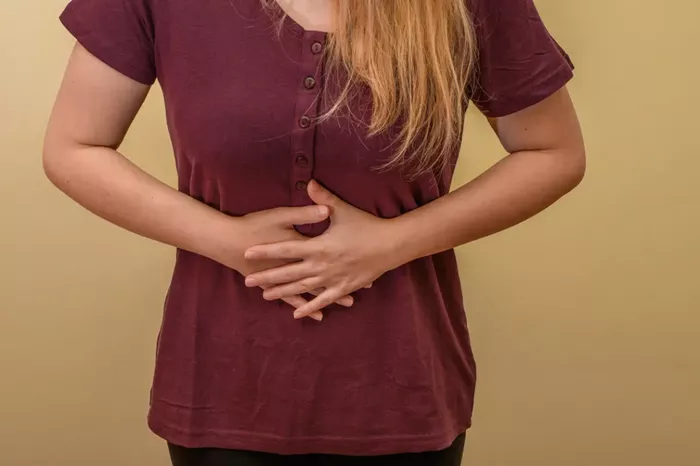Introduction
Chronic constipation is a common digestive issue characterized by infrequent bowel movements, difficulty passing stools, and often, discomfort or pain. This condition can significantly affect quality of life. Understanding the causes of chronic constipation and adopting effective strategies can provide relief and improve overall digestive health. Here is a comprehensive guide on what to do for chronic constipation.
Understanding Chronic Constipation
Chronic constipation can result from various factors, including:
Diet: Low fiber intake, insufficient water consumption, and a diet high in processed foods can contribute to constipation.
Lifestyle: Lack of physical activity and prolonged sitting can slow down bowel movements.
Medications: Certain medications, such as opioids, antacids containing aluminum or calcium, and some antidepressants, can cause constipation.
Medical Conditions: Conditions like irritable bowel syndrome (IBS), hypothyroidism, diabetes, and neurological disorders can lead to constipation.
Stress and Anxiety: Stress and anxiety can affect digestive function and lead to constipation.
Ignoring the Urge to Go: Delaying bowel movements can cause stool to become harder and more difficult to pass.
Effective Solutions for Chronic Constipation
Increase Fiber Intake:
Fiber adds bulk to stool and helps it pass more easily through the intestines. Aim for 25-30 grams of fiber per day. Include both soluble and insoluble fiber in your diet.
Soluble Fiber: Found in oats, beans, lentils, fruits (like apples and oranges), and vegetables (like carrots).
Insoluble Fiber: Found in whole grains, nuts, seeds, and vegetables (like broccoli and spinach).
Stay Hydrated:
Drink plenty of water throughout the day. Adequate hydration helps soften stool and promotes regular bowel movements. Aim for at least 8 cups (2 liters) of water daily.
Exercise Regularly:
Physical activity stimulates the muscles in the intestines, promoting regular bowel movements. Aim for at least 150 minutes of moderate-intensity exercise per week. Activities like walking, jogging, swimming, and yoga can be beneficial.
Establish a Regular Bowel Routine:
Try to go to the bathroom at the same time each day, preferably after meals when the gastrocolic reflex is active. Give yourself enough time and relax to avoid straining.
Eat a Balanced Diet:
Incorporate a variety of fruits, vegetables, whole grains, lean proteins, and healthy fats into your diet. Avoid processed foods, excessive dairy, and high-fat or low-fiber foods.
Use Natural Laxatives:
Prunes and Prune Juice: Prunes are rich in fiber and contain sorbitol, a natural laxative.
Flaxseeds: Add ground flaxseeds to your diet for extra fiber and omega-3 fatty acids.
Psyllium Husk: A fiber supplement that can help increase stool bulk and promote regularity.
See Also: Understanding Average Weight Gain During Menopause: A Healthy Diet Listed
Consider Probiotics:
Probiotics are beneficial bacteria that support gut health and can improve bowel regularity. Foods like yogurt, kefir, sauerkraut, and kimchi contain probiotics. Probiotic supplements can also be helpful.
Limit Foods That Cause Constipation:
Reduce intake of foods that can cause constipation, such as processed foods, red meat, dairy products, and foods high in fat and sugar.
Avoid Overuse of Laxatives:
While laxatives can provide short-term relief, overuse can lead to dependency and worsen constipation. Use laxatives only as directed by a healthcare provider.
Practice Stress Management:
Stress can affect bowel function. Practice stress-reducing techniques such as mindfulness meditation, deep breathing exercises, yoga, and regular physical activity.
Consider Medications:
If lifestyle changes and natural remedies do not provide relief, consult a healthcare provider. They may prescribe medications such as stool softeners, osmotic laxatives, or stimulant laxatives.
Additional Tips for Managing Chronic Constipation
Warm Liquids:
Drinking warm liquids, especially in the morning, can help stimulate bowel movements. Try warm water with lemon, herbal teas, or warm broth.
Monitor Your Diet:
Keep a food diary to identify foods that may trigger constipation. Adjust your diet accordingly to avoid these foods.
Massage Your Abdomen:
Gently massaging your abdomen in a circular motion can help stimulate bowel movements. Start at the right side of your abdomen and move up towards your rib cage, then across and down the left side.
Elevate Your Feet:
Using a small stool to elevate your feet while sitting on the toilet can help align your colon and make it easier to pass stool.
Seek Professional Help:
If constipation persists despite trying these strategies, consult a healthcare provider. They can identify underlying causes and recommend appropriate treatments, including diagnostic tests, medications, or referral to a specialist.
Conclusion
Chronic constipation can be managed effectively with dietary changes, lifestyle modifications, and natural remedies. Increasing fiber intake, staying hydrated, exercising regularly, and establishing a regular bowel routine are essential steps in promoting regularity. Using natural laxatives, probiotics, and stress management techniques can further support digestive health. If these measures do not provide relief, seeking professional help is crucial to address underlying causes and receive appropriate treatment. By adopting these strategies, you can improve bowel function, alleviate discomfort, and enhance overall well-being.
FAQs
What foods can help relieve chronic constipation?
Foods high in fiber, such as fruits, vegetables, whole grains, and legumes, can help relieve constipation. Prunes, flaxseeds, and psyllium husk are also effective natural laxatives.
How much water should I drink to prevent constipation?
Aim to drink at least 8 cups (2 liters) of water daily to stay hydrated and help soften stool, making it easier to pass.
When should I see a doctor for chronic constipation?
If lifestyle changes and natural remedies do not relieve constipation, or if you experience severe pain, blood in the stool, or unexplained weight loss, consult a healthcare provider for further evaluation and treatment.
Related topics:
- Understanding IBS as a Chronic Illness: A Complete Overview
- Understanding Constipation: Causes, Symptoms, and Prevention
- What Are The Signs That Your Immune System Is Weak?


